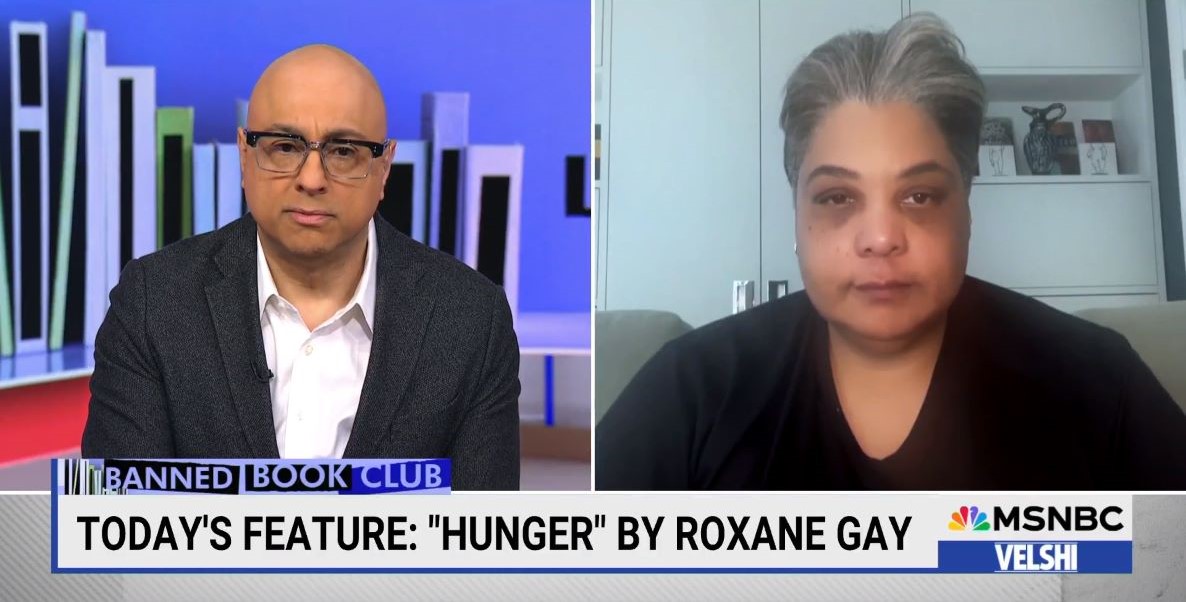At 12 years old, author Roxane Gay was gang-raped by someone she trusted and a group of his friends. This is a brutal event stripped down to its most honest terms, with no euphemisms like “incident” or “violation,” and underpins Gay’s journey in her book, Hunger: A Memoir of My Body, through trauma to claiming her body as her own. Naturally, Ali Velshi is unsurprised that Florida’s Indian River County Schools made sure to pull this powerful, raw story of what it feels like to be a Black woman in a large body from its library shelves.
Gay’s memoir is an expansive examination of her teen and young adult years, contemplating the societal demands and expectations of appearance, women’s pleasure, and consumption. Gay describes how her identity is fraught with how others see her size, skin color, and gender, an experience that every human being who doesn’t fit the mold — so, most of us— goes through as they become adults.
While we have made great strides in acceptance and civil rights, the stories of Black women are often discounted, ignored and declared uncomfortable. Gay emphatically demands that these stories deserve to be told.
“I do believe that we’re continuing to fight the good fight to create a space where women can be however they choose to be, whether it’s conventionally attractive or simply living in their bodies as honestly as possible,” Gay says. “I try not to judge the choices that women make, and I think that’s a place we all need to get to, where we just allow women to live as openly and freely as possible.”
Listen to Velshi’s interview with Roxane Gay:
Watch Velshi and Gay discuss identity, trauma, and women’s bodies:
Velshi on banned books on MSNBC:
![]() MORE ON BANNED BOOKS FROM THE CITIZEN
MORE ON BANNED BOOKS FROM THE CITIZEN
Ali Velshi interviews Roxanne Gay on her memoir, Hunger




